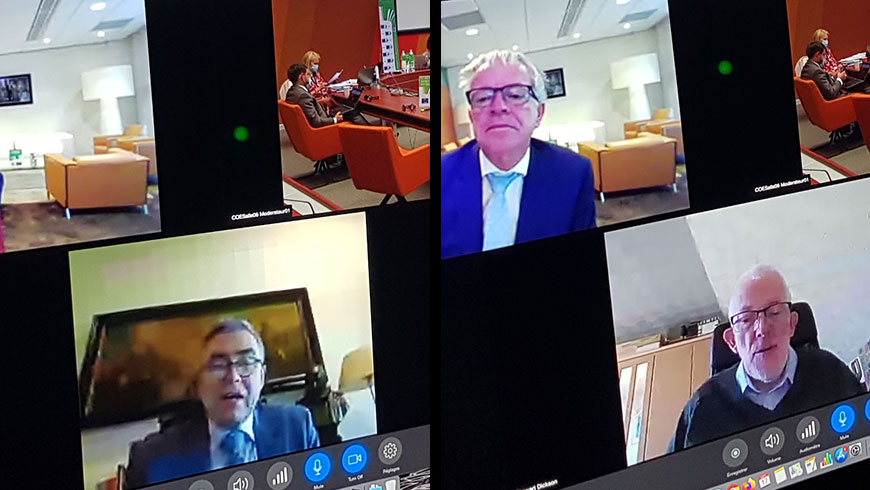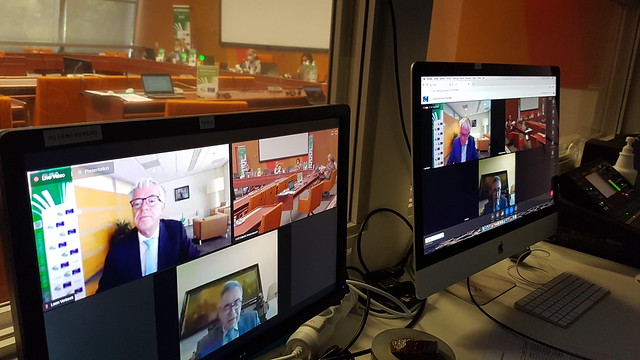“Crisis situations like the current Covid-19 pandemic, as well as natural disasters or security threats, have exposed governments in Europe and beyond to considerable challenges in maintaining the normal functioning of democratic institutions, including free and fair periodic elections,” stressed the Co-Rapporteurs of the Congress, Stewart Dickson (United Kingdom, ILDG) and Jos Wienen (Netherlands, EPP/CCE), at the presentation of a new report on “Local and regional elections in major crisis situations”, adopted by the Monitoring Committee on 17 September 2020.
“The current situation shows that local and regional authorities are in the forefront of coping with repercussions of crises. In this context, the democratic legitimacy provided to local and regional representatives by free and fair election is even more essential than ever,” said Stewart Dickson. ”At the same time, states as well as local and regional authorities have a fundamental obligation to protect life, health and security of individuals which may in times of extraordinary crisis seem incompatible with holding of elections ,” he underlined.
On this note, Jos Wienen emphasised that there was no easy recipe for holding elections in times of crisis. In most situations, risks can be only mitigated, not entirely eliminated. On the other side, voting by post requires very reliable postal service and public trust in the security of the ballot.” He also stressed that “while not all electoral standards can be kept in major crisis situations, a minimum core of principles must be upheld for elections to be meaningful and to enjoy the trust of the public in a democratic, pluralistic and accountable political environment. “In times like this, also election observers face unprecedented issues in their work due to travel restrictions, quarantine measures and health risks,” he added.
The Congress regularly observes local and regional elections upon invitation by Council of Europe member States. “To pursue these activities, the Congress must develop temporary alternative strategies such as remote meetings with key stakeholders and collaboration with international partners. We need to be able to response quickly to invitations of member States to observe elections while ensuring the safety of election observers and respecting emergency measures,” Stewart Dickson underlined.
The report builds on different approaches adopted by States, in Europe and beyond, recently and during past crises, and provides an exhaustive compilation of guidelines in the view of international electoral standards. “The Covid-19 pandemic is a unique opportunity to gain insight and gather experience,” concluded the co-rapporteurs.
Agenda and documents:
COE CLOUD | ZIP format
Contact:
Stéphanie Poirel, tel. + 33 3 88 41 28 24
See also:





